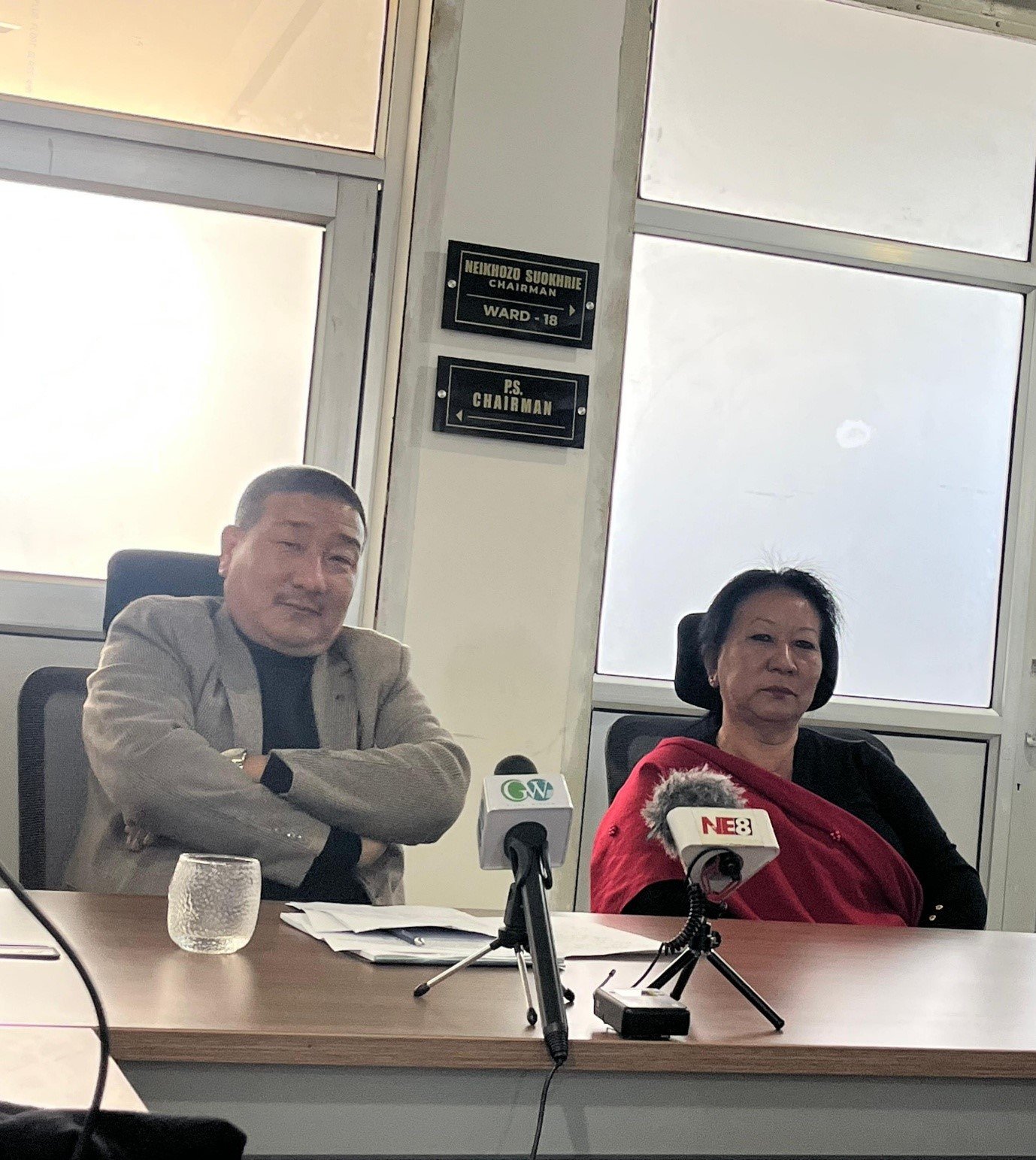Kohima Municipal Council (KMC) Deputy Chairman Khrielievi Chusi today highlighted the decision to mandate labourer registration for all workers in Nagaland, acknowledging the considerable challenge of identifying labourers.
He announced this during a press conference held at the KMC office in Kohima.
Chusi expressed that the necessity for this initiative stemmed from the local community’s openness and trust towards individuals. “To ensure safety and accountability, it is essential to know the backgrounds of workers, leading to the introduction of labor registration alongside uniforms,” stated Chüsi.
He mentioned that the registration will also help identify any workers with a criminal background or any other issue.
According to KMC, all registered porters will receive a token number, and those found working without the number will face penalties. Registration is set to begin on December 2, and uniforms will be distributed after the Hornbill Festival. A nominal fee will be charged for registration.
Additionally, Chüsi announced that they will monitor the prices of vegetables and other market items, as the public has been misled by inflated rates. This will be strictly enforced, and defaulters will be penalized, he added.
He stressed the importance of keeping the city clean and stated that anyone not adhering to the guidelines will face penalties.
Download Nagaland Tribune app on Google Play

The need for the government to implement strict waste disposal policies was also highlighted. Further, the responsibility of each individual and shop must to manage their own waste was implored, with fines to be imposed on those who fail to comply. “Without fines, there can be no discipline, and Nagaland needs to be educated on this matter,” stated the Deputy Chairman.
The fines for improper waste management are as follows:
- Improper disposal of waste: ₹2,000
- Littering or non-segregation of waste: ₹1,000
- Absence of proper waste bins: ₹500
- Unauthorized burning of waste: ₹5,000
The Council also highlighted the need to raise public awareness about paying service taxes. “While we face many challenges, it’s important to recognize that development requires funding. The public must understand that, to maintain services, they also need to contribute financially,” stated Chüsi.

